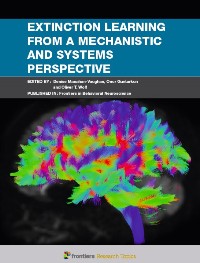DFG Research Unit 1581
Project Profile P5
Effects of stress on extinction, reconsolidation and renewal in humans
Learning, extinction and renewal are influenced by many external and internal factors. One potent modulator is stress and its associated neuroendocrine alterations. Evidence is accumulating that stress induced increases in glucocorticoids enhance extinction and impair reconsolidation. However, most previous work has focused on fear conditioning, and systematic studies on this topic in the human are lacking. Therefore, the goal of this project is to investigate systematically how stress influences extinction and renewal. Furthermore, the effects of reactivation (initiating reconsolidation processes) prior to extinction or prior to stress induction will be studied.
This information will significantly contribute to our understanding of modulatory factors that influence extinction in the human which will be of relevance for basic science studies and clinical applications alike. In the long run this advanced knowledge will contribute to more targeted and more effective therapeutic interventions.
Method
- induction of psychosocial stress via the Trier Social Stress Test (TSST)
- behavioural paradigm: predictive learning task and fear conditioning paradigm
- stress response measured by means of
- subjective ratings (affect assessment)
- neuroendocrine markers of Hypothalamus-Pituitary Adrenal (HPA) axis activity (salivary cortisol) and Sympathetic Nervous System (SNS) activity (salivary alpha amylase)
Subjects: healthy young, medication-free humans (student population)
Cooperation within the Research Unit
- Projects P3 & P6: They study the effects of noradrenalin (SNS neurotransmitter) on extinction and renewal, which will be interesting to compare with the effects of stress (both HPA and SNS activation) investigated in our experiment. P3 performs all neuroendocrine analyses for our project.
- Project P4: Employs a similar behavioural paradigm (predictive learning task) using attentional manipulations. Similarities in the obtained results are expected.
- Project P7: Measures basal cortisol and salivary alpha amylase levels which can be compared with the markers of HPA and SNS activity obtained after stress induction.
Contact: In case of any questions regarding P5 please contact
Prof. Dr. Oliver T. Wolf: e-mail: oliver.t.wolf@rub.de






 Don't forget...
Don't forget...
